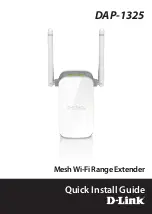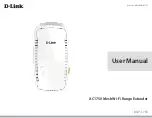
GB
below refer to these illustrations.
• Prior to putting the pump into operation for the
very first time, the pump housing should be fully
vented - i.e. filled with water - even in the case of
self-priming units. If this venting is omitted, the
pump will not suck in the liquid to be discharged.
It is highly recommendable, yet not mandatory, to
vent the intake line as well, i.e. to fill it with water.
• The pump must only be operated in the performance
range indicated on the type plate.
Dry-running - i.e. operating the pump
without discharging water - is to be
avoided since the absence of water
may cause the pump to run hot. This
may cause considerable damage on
the device. Moreover, this means that very hot
water will be enclosed within the system so
that there is a hazard of scalding. If the pump
has run hot, please pull off the mains plug and
allow the system to cool down.
• Please do not expose the pump to moisture (e.g.
when operating sprinklers). Do not expose the unit to
rain, either. Make sure that no dripping connections
are located above the pump. The pump should not
be used in wet or moist environments. Make sure
that the pump and the electrical plug connections
are arranged in a flood-proof place.
• The pump must not be running with the feeder line
closed.
• As long as the device is connected to the electrical
mains, one must never reach with one’s hands into
the opening of the pump.
Each time the pump is put into operation, please
make sure that the pump is set up securely and
firmly standing. The unit must always be positioned
upright on an even surface.
Please inspect the pump visually prior to each use.
This applies in particular to the mains connection
line and the mains plug. Make sure that all screws
are firmly tightened, and verify the perfect condition
of all connections. A damaged pump must not be
used. In any case of damage, the pump has to be
inspected by qualified service staff.
Prior to the first time the pump is put into operation,
the pump housing (10) has to be fully vented. To
do so, please fill the pump housing (10) through
the filling opening (8) completely with water.
Please check to make sure that no leakage occurs.
Subsequently, close the filling opening airtight again.
It is highly recommended to vent the suction line (2)
as well, i.e. to fill it with water. In this case, however,
the pump will require some time before it will have
sucked in the liquid to be pumped and proceed
to the actual discharging function. In addition, this
way of proceeding may require the pump to be
filled several times. This depends on the length
and diameter of the suction line. After filling, please
open any shutting device (5) in the pressure line, for
instance a water tap, to enable the air to escape
during sucking in.
Plug the mains plug into a 220-240V AC socket. If
the pump is equipped with a switch
ON position.
The pump will start running immediately. As soon
as the liquid is being discharged evenly and without
air mixture, the system is ready for operation. You
may then close the shutoff valve in the pressure line
again. The pump will cut out upon reaching the cut-
out pressure. If the pump was out of operation for
some extended period of time, the steps described
above have to be repeated for a renewed putting into
operation.
ANTI DRY-RUNNING FEATURE (NOT SUPPLIED)
We recommend to add an anti dry-running feature.
This protection system prevents the pump from
damage which may be caused by its operation with
an insufficient water level or by an overheating of the
hydraulic system.
8. SETTING THE PRESSURE SWITCH
Changing the preset cut-in and cut-out
pressure must only be done by qualified
staff.
The electrical pumps of the SPIDO series will cut
in as soon as the cut-in pressure is reached as
a result of a pressure drop occurring within the
system - as a rule, by opening of a faucet or any
other consumer element. Cutting-out occurs after
the consumer element concerned has been shut off
and the pressure in the system has increased again
to reach the cut-out pressure. The pressure switch
is ex-factory set (see 2. Technical data). Experience
has shown that these values are ideally suited
for most installations. Should any modification of
these settings be required, please contact your
installation or electrical specialist. Any change in the
pressure switch setting must be accompanied by an
adjustment of the tank air pressure (0.2 bar less than
the starting pressure).
















































